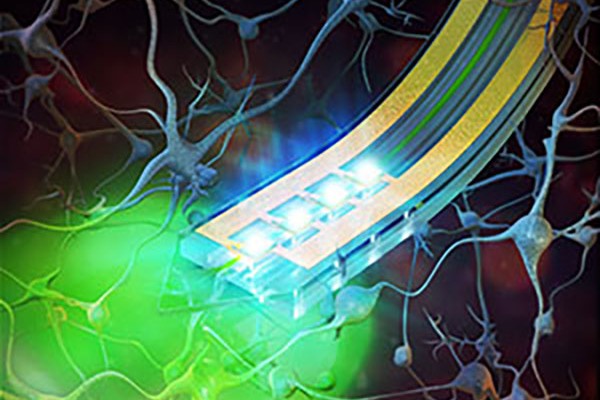Reward, aversion behaviors activated through same brain pathways
New research may help explain why drug treatments for addiction and depression don’t work for some patients. The conditions are linked to reward and aversion responses in the brain. And the research suggests that some treatments simultaneously stimulate reward and aversion responses, resulting in a net zero effect.
Exploring the brain’s role in stress-induced anxiety
Calming a neural circuit in the brain can alleviate stress in mice, according to new research at Washington University School of Medicine in St. Louis that lays the foundation for understanding stress and anxiety in people. The researchers also showed they could shine a light into the brain to activate the stress response in mice that had not been exposed to stressful situations.
Device delivers drugs to brain via remote control
A team of researchers, including neuroscientists from Washington University School of Medicine in St. Louis, has developed a wireless device the width of a human hair that can be implanted in the brain and activated by remote control to deliver drugs to brain cells. The technology, demonstrated for the first time in mice, one day may be used to treat pain, depression, epilepsy and other neurological disorders in people by targeting therapies to specific brain circuits.
Bruchas, Gereau receive DECODE grant
Anesthesiology researchers Robert Gereau, PhD, (left) and Michael Bruchas, PhD, (right) have received one of only 11 DECODE (Deciphering Circuit Basis of Disease) grants to be awarded. The awards were announced at a ceremony featuring Thomas Insel, MD, (center) director of the National Institute of Mental Health (NIMH).
NIH award funds research into tiny devices that shine light on brain disorders
To better understand and one day provide improved treatments for depression, addiction and anxiety, School of Medicine researchers are using tiny, electronic devices to identify and map neural circuits in the brain. The work has been awarded a rare grant called EUREKA (Exceptional, Unconventional Research Enabling Knowledge Acceleration), which provides funding for high-risk/high-reward projects.

